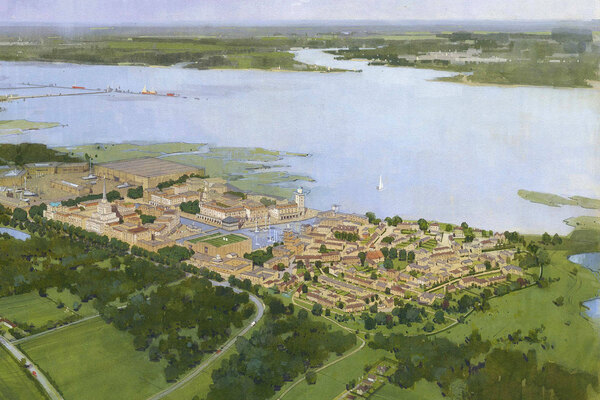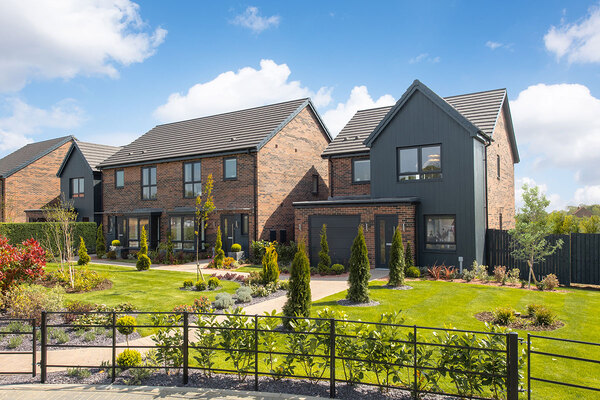You are viewing 1 of your 1 free articles
Labour’s New Towns need to be about more than just buildings
We have an opportunity to show how development can be done right, with homes and community at its heart, writes CIH Futures’ Halisha Kaur
Labour has pledged to “get Britain building again” and has committed to build 1.5 million homes over the next five years. A big part of the plan to achieve this is to create the “next generation of New Towns”.
New Towns are something that we’ve seen and done before, but this time they are an opportunity to not only increase the supply of homes, but to set a standard for how housing should be done.
In its 10-point plan for housing, the Chartered Institute of Housing (CIH) supported the case for them as a means to boost much-needed quality and affordable supply.
As Labour states, New Towns should create “new communities with beautiful homes, green spaces, reliable transport links and bustling high streets”. All of these factors contribute to positive health and lifestyle outcomes, suggesting that this is more than just a bricks-and-mortar response to Britain’s housing crisis; it is an approach to understanding how inextricably housing is linked to public sector services.
High-quality, safe, warm homes are more than just a roof over a head; where you live can influence a range of social, economic and well-being factors, which in turn have an impact on the health (mental and physical) of individuals, families and communities.
There is currently no detailed plan on the New Towns approach and how these will be implemented, but it is imperative that the creation of “community” is at the heart of designs.
“High-quality, safe, warm homes are more than just a roof over a head; where you live can influence a range of social, economic and well-being factors, which in turn have an impact on health”
Many housing professionals will be aware of areas and estates where responses to housing need have been done badly in the past: concrete jungles of tower blocks, smaller blocks and hundreds of terraced houses providing poor-quality homes in places that didn’t work. In many cases, plans had to be put in place to improve and regenerate these areas within a few years of them being developed.
To avoid repeating past mistakes, New Towns should provide an innovative approach to development: putting people first, while prioritising well-being and green principles.
The approach should create a culture in which the pedestrian is a priority, through building and signposting accessible walking and cycling routes for recreation and day-to-day activities, as well as ensuring we develop within close proximity to bus routes and train stations for increased accessibility to public transport.
Investing in local amenities and ensuring quality access to these for all residents are also vital. This can include engaging with existing schools, GPs and shops to assess where improvement is required.
New Towns should prioritise investment in green spaces within developments in the form of landscaped pathways, communal greens and public open spaces, enabling all households to have access to some form of green recreational space.
Community engagement is key throughout the development process. Taking into account the views of existing communities when creating new ones can encourage cohesion and ensure that public needs are met.
Community engagement also allows an opportunity to reach out to a diverse range of people, shedding light on the needs of different age groups, ethnicities and genders, which can result in the creation of a thriving community.
“The social housing sector should be at the heart of the New Towns plan, and share the lessons learned and successes in our developments that have led to building strong communities with high-quality homes”
If put into practice properly, with legislation and policy support, New Towns certainly can be part of the solution to address the housing crisis and more, but there is no doubt that it will require a complete shift in housebuilding and planning culture. New Towns will require developers to have a heavy focus on their end-users and to build high-quality homes that are accessible and have green spaces.
It will require planners to ensure that New Town principles are being implemented throughout development stages, not forgetting that none of this can be achieved without taking into account key public services such as housing, the NHS and emergency services.
Taking development beyond the build is embedded in housing associations; our development teams work closely with our housing officers and frontline staff to ensure that customers’ needs are met from conception through to completion and beyond.
The social housing sector should be at the heart of the New Towns plan, and share the lessons learned and successes in our developments that have led to building strong communities with high-quality homes.
The principles of New Towns go beyond bricks and mortar. They’re about creating thriving communities and improving life opportunities. If fully invested in, the next generation of New Towns can create better-quality homes than this country has seen recently, and diverse communities that can stand as a legacy of a successful approach to building.
Halisha Kaur, chair, CIH Futures, and new business development manager, BDHT
Sign up for our daily newsletter
Already have an account? Click here to manage your newsletters













